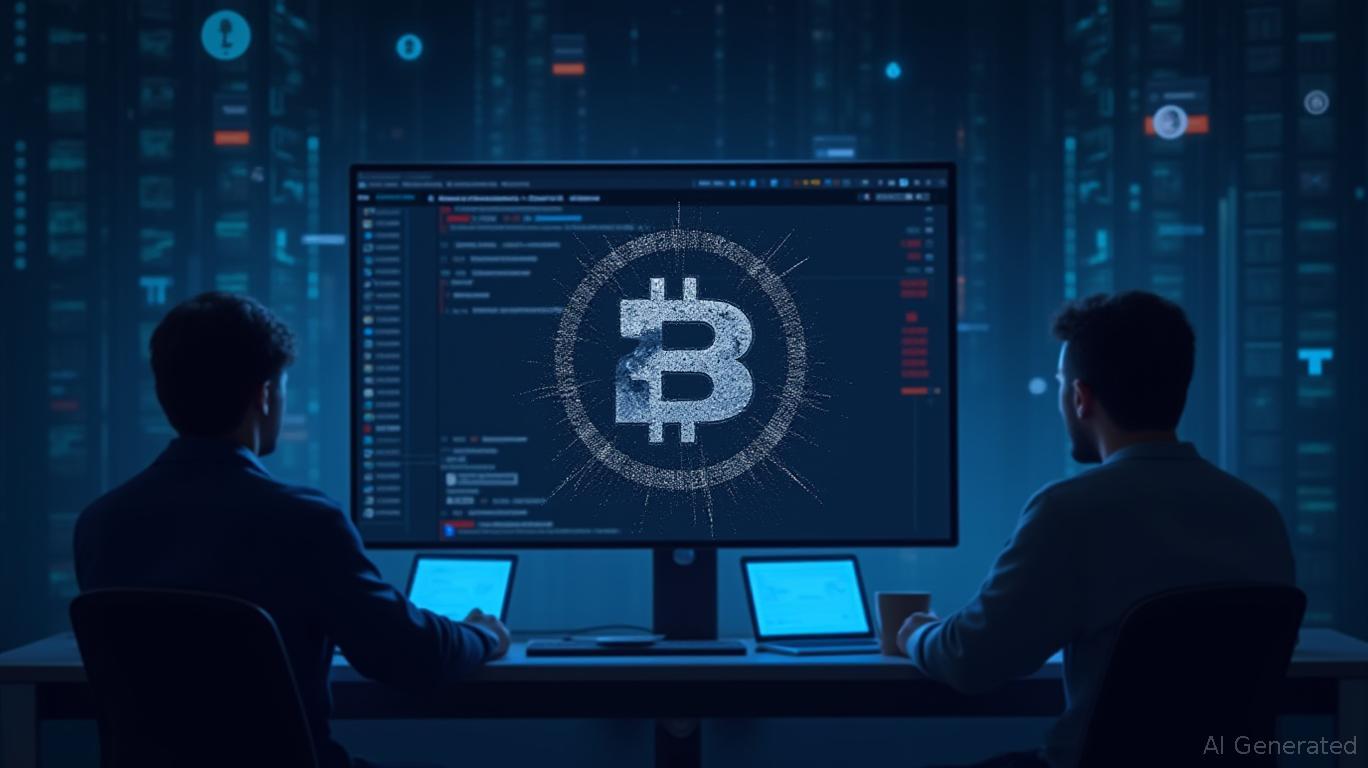Balancer Suffers $116M Hack, Highlighting Trust Issues in DeFi
- Balancer Protocol suffered a $116.6M exploit on November 3, 2025, marking one of DeFi’s largest breaches. - Attackers exploited boosted pools’ vulnerabilities, draining liquidity across multiple blockchains within 30 minutes. - Forked projects like Beets also lost funds, triggering panic withdrawals and renewed debates over DeFi security gaps. - PeckShield urged users to revoke approvals, while Lido and Aave confirmed core operations remained unaffected. - The incident exposed systemic risks in complex p
On November 3, 2025, the DeFi sector was rocked by a major incident as
The attacker exploited a major flaw in Balancer’s boosted pools, which are based on Ether derivatives, enabling them to bypass access controls and withdraw liquidity, per TradingView’s findings. The pilfered funds were swiftly transferred to a single wallet address, 0x506D19...AE03207, and then dispersed to various wallets to hinder tracking. By the time the breach was made public, the hacker’s DeBank account still held about $95 million, with another $21 million already moved elsewhere.

The impact extended beyond Balancer, as forked projects such as Beets on the
PeckShield, a blockchain security company, advised users to revoke any Balancer-related permissions and keep an eye on their wallet activity. Meanwhile, Balancer’s developers confirmed the exploit but did not share specifics about the underlying vulnerability. The incident has reignited discussions about whether current DeFi security protocols are sufficient, with Minal Thurkal, head of DeFi Ecosystem Growth at CoinDCX, cautioning about the dangers of intricate protocols that stray from standard measures like TVL, as mentioned in
While investigations are ongoing, the DeFi world is left to reckon with the consequences of this breach. The hack not only revealed technical flaws but also underscored the difficulties in sustaining user confidence in a still-maturing industry. With the stolen funds likely to be further laundered and dispersed, the path to restitution for those affected remains unclear.
Disclaimer: The content of this article solely reflects the author's opinion and does not represent the platform in any capacity. This article is not intended to serve as a reference for making investment decisions.
You may also like
Blockchain Connects Traditional Finance as UBS Achieves Tokenized Fund Breakthrough
- UBS AG executed its first tokenized fund transaction via Chainlink's blockchain infrastructure, marking traditional finance's integration with decentralized technology. - Chainlink's DataLink service enabled real-time, tamper-proof data feeds for UBS's tokenized funds, enhancing transparency through institutional-grade market data integration. - The milestone follows UBS's $3.25B bond issuance and HSBC price upgrade, reflecting its strategic shift toward blockchain-driven solutions amid regulatory scruti

Democratizing Blockchain Profits: Mevolaxy’s Application Facilitates $3.6 Million in Distributions
- Mevolaxy, a U.S. mevstake platform, launched a mobile app and reported $3.6M in Q3 payouts, surpassing its previous record. - Its Mevstake system democratizes MEV strategies by pooling liquidity, offering fee-free staking with reduced market risk through locked terms. - The app emphasizes real-time tracking and user-friendly design, aligning with the platform's mission to make blockchain earnings accessible to all users. - Backed by experienced blockchain engineers and DeFi specialists, Mevolaxy's growth

Ethereum Updates Today: Large Holders Increase Holdings, Offsetting Ethereum's $3,400 Liquidation Risk
- Ethereum faces $3,400 liquidation risks amid $3,600 breakout threats, with $807M short and $564M long liquidations at key levels. - Institutional accumulation (82,000 ETH by BitMine) and whale treasury holdings counter short-term weakness, while U.S. outflows contrast Asian inflows. - Layer-2 platforms maintain $20B TVL despite price declines, and projects like Remittix secure $27.8M to capitalize on market recovery. - Analysts project $4,000-$4,500 medium-term recovery if macroeconomic clarity and stabl

Community First, Not Investors: UnifAI's Tokenomics Redefine DeFi Standards
- UnifAI introduces a tokenomics model allocating 13.33% to community/ecosystem, challenging DeFi norms prioritizing investors. - This contrasts traditional models, emphasizing decentralized governance and user-driven growth through staking, voting, and revenue sharing. - 7% liquidity allocation and 20.75% foundation funds ensure stability, while 15% team incentives align long-term success with stakeholders. - Analysts highlight the 13.33% community focus as a strategic differentiator, mirroring institutio
